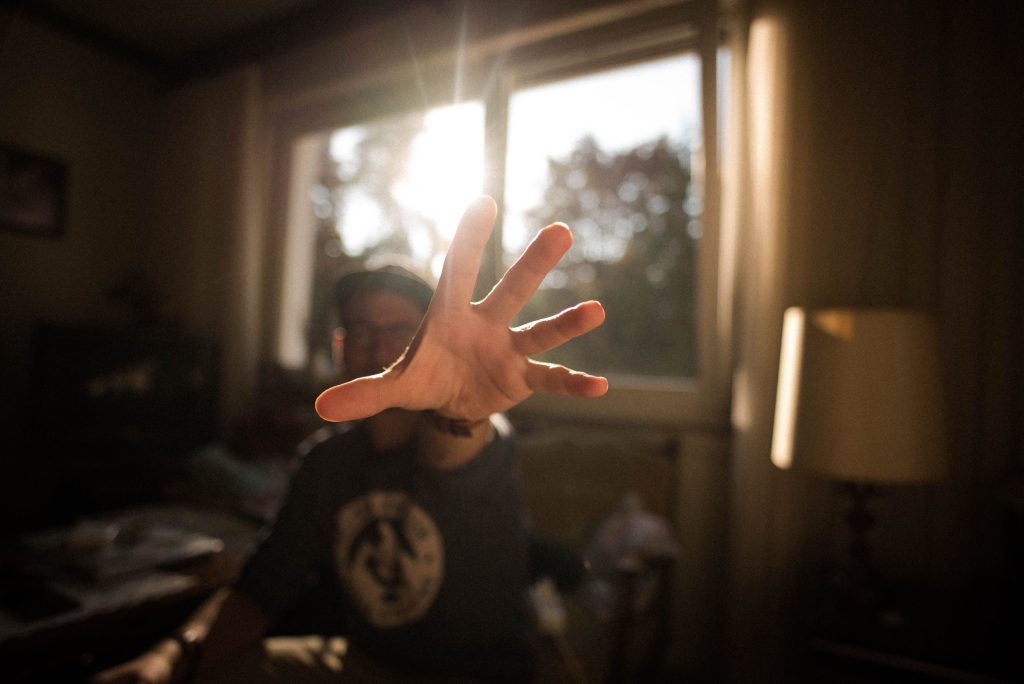When an Ex-Boyfriend Threatens Recovery

What can the family do when their loved one is making great progress in recovery but mixing with shady characters from their past, such as an ex-boyfriend? An Allies in Recovery member wonders how she can support her daughter with this additional challenge:
This post originally appeared on our Member Site blog, where experts respond to members’ questions and concerns. To sign up for our special offer and get a taste of the Allies in Recovery eLearning program, click here.
“My 22 year old daughter left rehab three weeks ago after a 3.5 month stay. She is now living in a highly structured sober house about to begin a year-long program at a beauty academy. Returning to college is out of the question for now. She would likely be at high risk for using/relapsing on campus. Her last two relapses came about in connection with a particular boyfriend (heroin addict). This is when she began smoking crack and snorting heroin.
While she was in rehab, this boyfriend was arrested and spent two months in jail. After she left rehab, she told me that she visited the boyfriend while he was still in jail. Everyone has cautioned her about this relationship. The good news is that she didn’t lie to me about visiting him. I told her that I would appreciate knowing the truth, rather than being lied to. As much as I wanted to tell her to stay away from him, I refrained. I understand I have no control over this part of her life.
I can only hope that once she begins her new course of study, while also living in the sober house and attending AA/NA meetings, the relationship will naturally slow down. Meanwhile, can you make any other suggestions that I might not have thought of?”
Dominique Simon-Levine responds to this concerned mother below:
I am grateful to hear about your family’s good fortune. Others will appreciate its hopeful message. Thank you for writing in.
Your daughter has been on quite a journey. Your description of her treatment and plan for living highlights the importance of structure and the message of recovery so critical in day-to-day life. Her willingness to accept a new way of life shines through. It’s just wonderful.
(A note about college. Many are developing sober dorms and providing other ways of supporting sober students. It’s worth looking into what is available should she want to return to college some day.)
Handling the boyfriend situation calmly
The ex-boyfriend is also being shepherded towards recovery, albeit more roughly, through the criminal justice system. I hope for him too that he may get the spark that will lighten his life immeasurably.
In terms of your daughter’s continuing ties with this young man, your instincts are very good. You can’t ask your daughter not to see the ex-boyfriend; you can ask your daughter not to lie to you.
Maintaining recovery is a process
It’s common to be blindsided, being drawn to or bumping headlong into people/places/things that can trigger you to use (like an old dangerous relationship). You pass the corner where you once bought drugs and a wave of anticipation for the drug floods your every sense. You think you can sit on a bar stool with your old network but just not drink or do lines of coke with them in the bathroom like you use to.
Your daughter has been taught to recognize these moments as triggers. She has been taught to quickly do the calculation in her head …. “Ah, wow, that’s what they mean by a trigger! I have gained something in my abstinence that is not worth throwing away by using.” Here’s a poem that has been widely shared by recovering folks.
THERE’S A HOLE IN MY SIDEWALK
~ a poem by Portia Nelson
Chapter 1
I walk down the street.
There is a deep hole in the sidewalk.
I fall in.
I am lost, I am helpless.
It isn’t my fault.
It takes forever to find a way out.
Chapter 2
I walk down the street.
There is a deep hole in the sidewalk.
I pretend that I don’t see it,
I fall in again.
I can’t believe I am in this same place.
But, it isn’t my fault.
It still takes a long time to get out.
Chapter 3
I walk down the same street.
There is a deep hole in the sidewalk.
I see it is there,
I still fall in. It’s a habit … but, my eyes are open.
I know where I am.
It is my fault.
I get out immediately.
Chapter 4
I walk down the same street.
There is a deep hole in the sidewalk,
I walk around it.
Chapter 5
I walk down another street.
Would you say your daughter is in Chapter 3?
As you know, having loved and cared for someone (even someone who is self-destructive and bad news) is terribly hard to shake off. And in a sense, we can all understand this. Why would you want to rid yourself of love and compassion for another? I hope for your daughter that she can appreciate the vestiges of love and compassion for this young man AND still honor the need to move on.
She told you about her visit with him. You have done an important thing building that bridge with your daughter so that she shares truthfully with you.
Old boyfriends, street corners, and bar stools are everywhere in sobriety. As long as your daughter continues to prioritize her recovery, trust that she will walk on by.
Since 2003, Allies in Recovery has addressed substance abuse in families by providing a method for the family to change the conversation about addiction. We use Community Reinforcement & Family Training (CRAFT), a proven approach that helps the family unblock and advance the relationship towards sobriety and recovery and to engage a loved one into treatment. Learn about member benefits by following this link.
